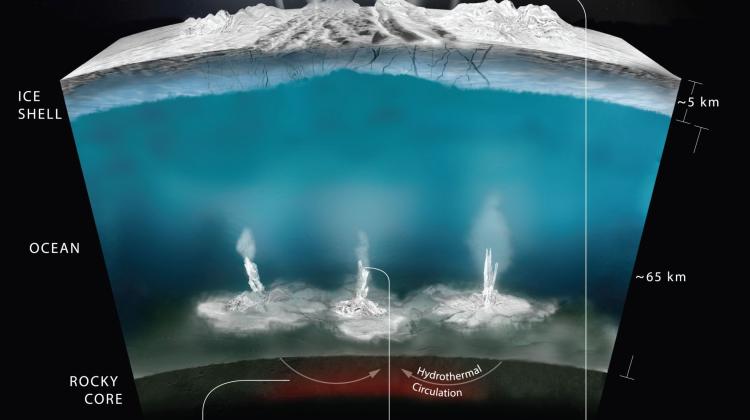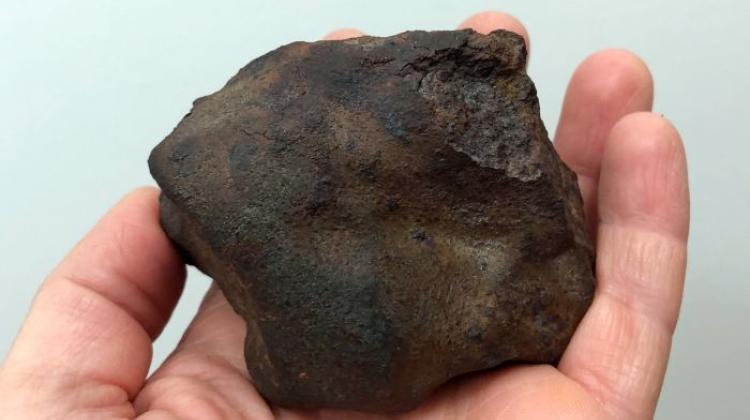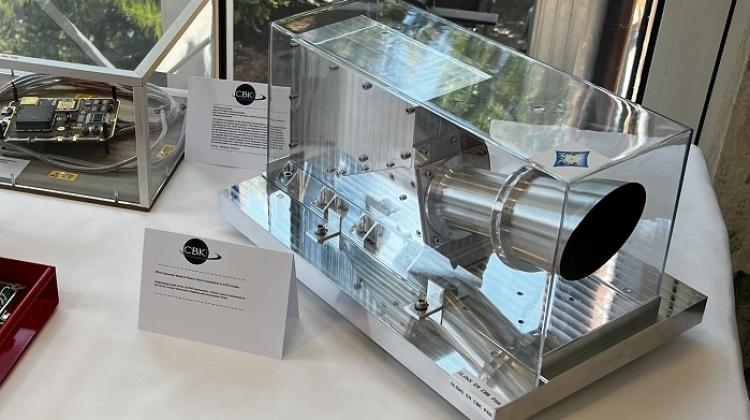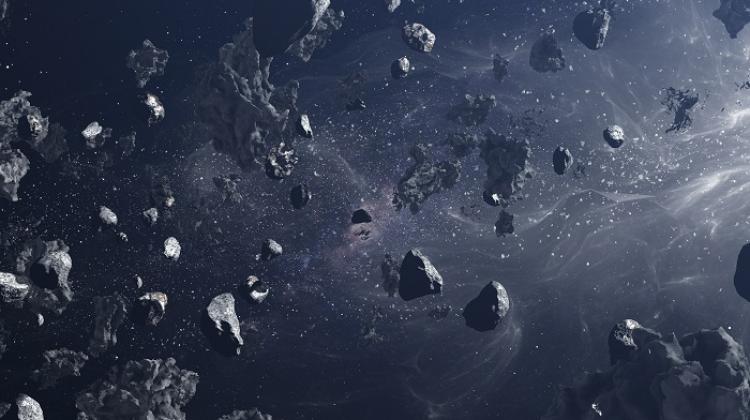NASA: The ocean on Saturn's moon may have conditions necessary for life

Enceladus - Saturn\'s moon - hides an ocean under the ice, in which conditions could be sufficient for life, NASA announced. "To search for life, we do not even have to leave the Solar System" - commented astronomy promoter Karol Wójcicki in an interview with PAP.
Last Thursday, NASA announced the inconspicuous, mere 500 kilometres in diameter Saturn\'s moon Enceladus could have conditions sufficient for life. The Cassini probe surveyed the composition of plumes on the surface of this satellite. Experts expect that there could be thermal vents under thick layers of ice in the Enceladus\' ocean,.
It is possible that life could have developed under such conditions.
"It has long been said that under the ice cover of such moons as Europa or Enceladus that orbit Jupiter there may be an ocean of liquid water. But more importantly, we were hoping that at the bottom of the oceans there might be reactions similar to those around thermal vents in the Earth\'s oceans. There would be hot water near which in the past life was developing on Earth" - explained Karol Wójcicki, author of the leading popular fanpage "Head in the stars" on FB.
"To search for life, we do not even have to leave the Solar System. We still have a lot to investigate here" - commented Wójcicki.
He reminded that the depth of the ocean at Enceladus could reach 30 km. This ocean is covered with a several dozen kilometres thick layer of ice. When passing Saturn, the Cassini probe observed huge ice plumes near the south pole of the moon. Later, when it flew through these "fountains" - it turned out that they contained hydrogen, among other things. "This can be explained by the presence of thermal vents on the ocean floor. The presence of hydrogen can be a source of energy for anaerobic living organisms. But we do not known there is life on Enceladus It is still a mystery" - commented Wójcicki.
"We can only carefully watch the moon of Saturn and look for signs of the potential presence of organisms in this place. Unfortunately for several years it will be impossible, because in a few months the Cassini spacecraft that has made this discovery will complete its very long mission near Saturn. Further Enceladus missions are not planned for the time being" - Wójcicki said.
Although Enceladus does not seem to be a very hospitable place, there are several factors that can could be favourable for the presence of life. It is not just the water and heat needed to initiate chemical reactions. "Thick layer of ice would protect potential life forms from dangerous cosmic rays" - explained Wójcicki. He added that the Earth is protected from the effects of dangerous solar flares by the magnetosphere, while Mars no longer has such natural protection.
Wójcicki explained that although Enceladus did not have an active, hot core (like Earth), Saturn could be the source of its energy. "Enceladus is a small satellite (7 times smaller than our Moon - ed. PAP) orbiting a very large planet. Saturn\'s gravitational tides compress and stretches Enceladus, and then the heat is generated and released through thermal vents" - said Wójcicki.
He noted that we would have to wait for a detailed investigation of Enceladus. Before scientists send out a probe there, they have to obtain more information about Europa - the ice moon of Jupiter. It has been discovered before that there are conditions in which life could survive. "Europa is not only closer to the Earth, it is bigger and its orbit easier to enter. A satellite mission is being planned to explore the globe" - explained Wójcicki.
He added that scientists have been fantasizing for a long time about a lander that would attempt to land on Europa\'s surface, melt through the ice and dive into the moon\'s ocean.
PAP - Science and Scholarship in Poland, Ludwika Tomala
lt/ zan/ kap/
tr. RL
Przed dodaniem komentarza prosimy o zapoznanie z Regulaminem forum serwisu Nauka w Polsce.


















